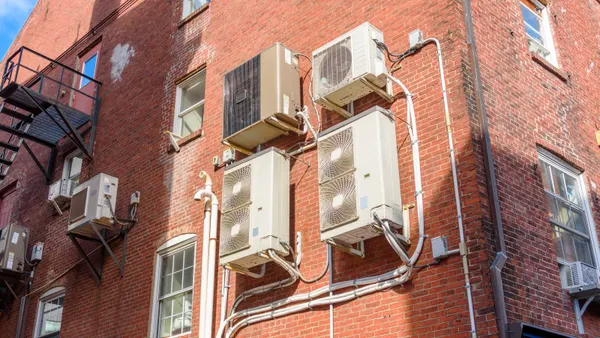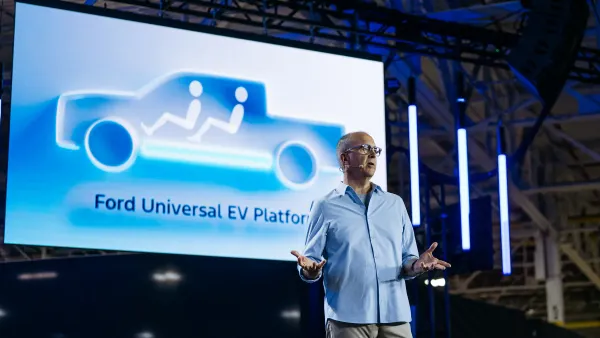Dive Brief:
- The U.S. Department of Energy on Friday proposed new energy efficiency standards for residential water heaters that the agency says will save consumers $11.4 billion annually on their energy and water bills. If finalized, the new standards would take effect in 2029.
- The new standards would require many electric water heaters to achieve efficiency gains with heat pump technology and gas-fired instantaneous, or tankless, water heaters to make improvements through condensing technology.
- Efficiency and consumer advocates say the proposed rule will cut household bills and reduce electricity demand. But Rinnai America, which sells tankless water heaters, says the standards will “unreasonably restrict consumer access” to some products and ultimately put domestic jobs at risk.
Dive Insight:
For most households, water heaters are the second-biggest user of energy “so making them more efficient has a big impact in reducing costs and greenhouse gas emissions,” said Steven Nadel, executive director of the American Council for an Energy-Efficient Economy, known as ACEEE.
Heating and cooling are the largest residential use of energy. Water heating is responsible for about 13% of both annual residential energy use and consumer utility costs, according to DOE.
The proposed rule “has been a long time coming, but it’s a strong proposal that will cut household bills, reduce strain on the electric grid, and help protect the climate,” Nadel said.
Residential water heater standards were most recently updated in 2010 and the new standards are years overdue. DOE says its proposal will save Americans approximately $198 billion and reduce 501 million metric tons of carbon dioxide emissions over 30 years.
“Whatever type of water heater you have, it’s almost certainly one of the biggest drivers of your energy bills. This is going to cut those costs,” said Andrew deLaski, executive director of the Appliance Standards Awareness Project.
But according to Rinnai America President Frank Windsor, DOE’s proposal “will create an uneven market that effectively bans an already energy efficient product and puts American jobs at risk.”
The proposed rule would raise standards for tankless gas-fired water heaters to 90% efficiency, while leaving the standards for tank gas-fired water heaters at 70% efficiency, according to the company. Achieving 90% efficiency with non-condensing technology is “technologically impossible,” it said in a statement.
“Consumers who rely on access to tankless water heaters will see their options limited, resulting in higher energy bills and shorter appliance lifespans, while the very environmental goals prompting this rule will go unfulfilled,” Windsor said. “We urge DOE to re-consider this untenable rule.”
DOE says the proposed rule would reduce energy use from residential water heaters by 21%. The agency is planning to hold a webinar on Sept. 13 to hear public comment on the proposal, and will accept written comments for 60 days after the proposed rule has been published in the Federal Register. Comments regarding the competitive impact of the proposed rule should be sent to the U.S. Department of Justice within 30 days.














